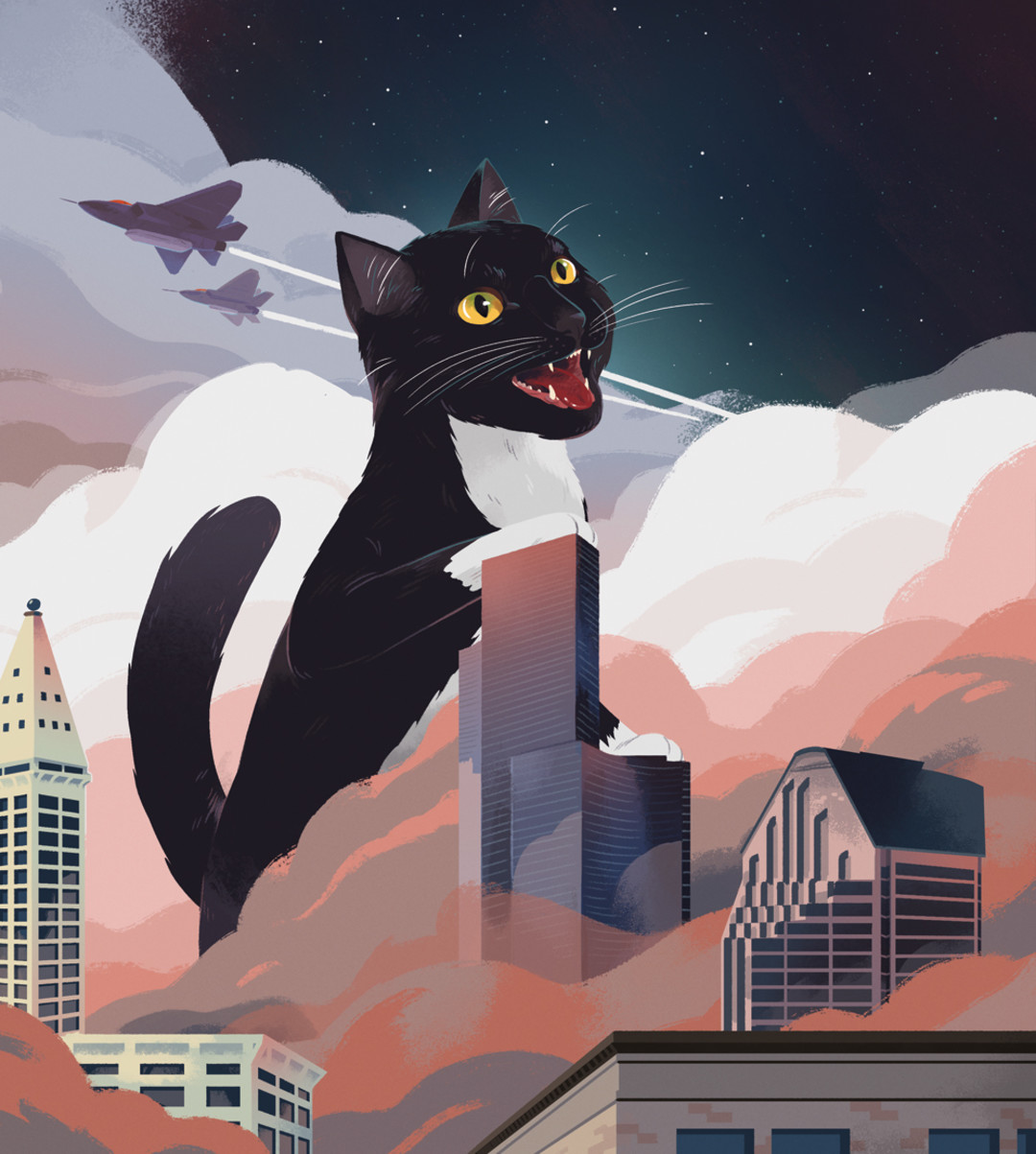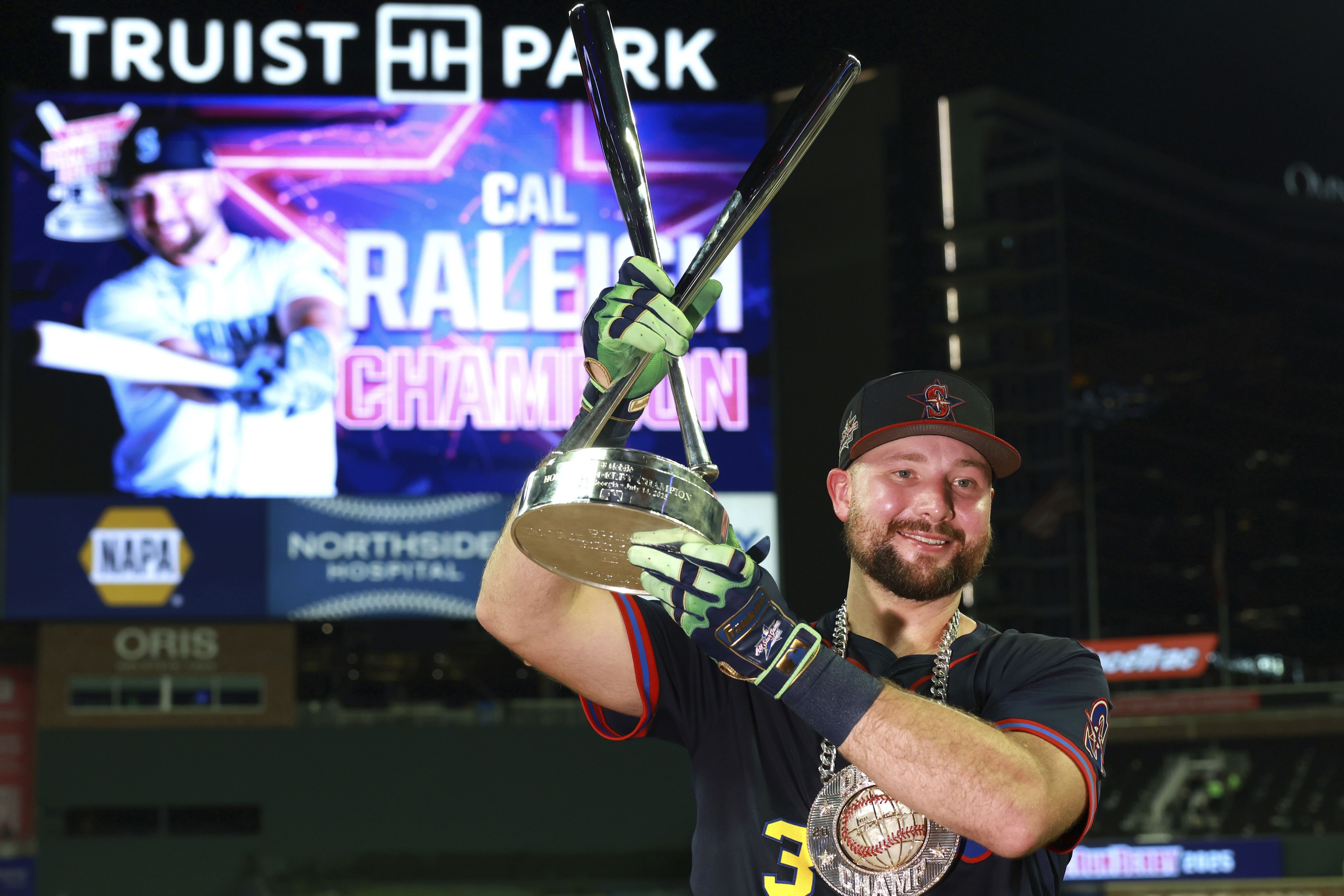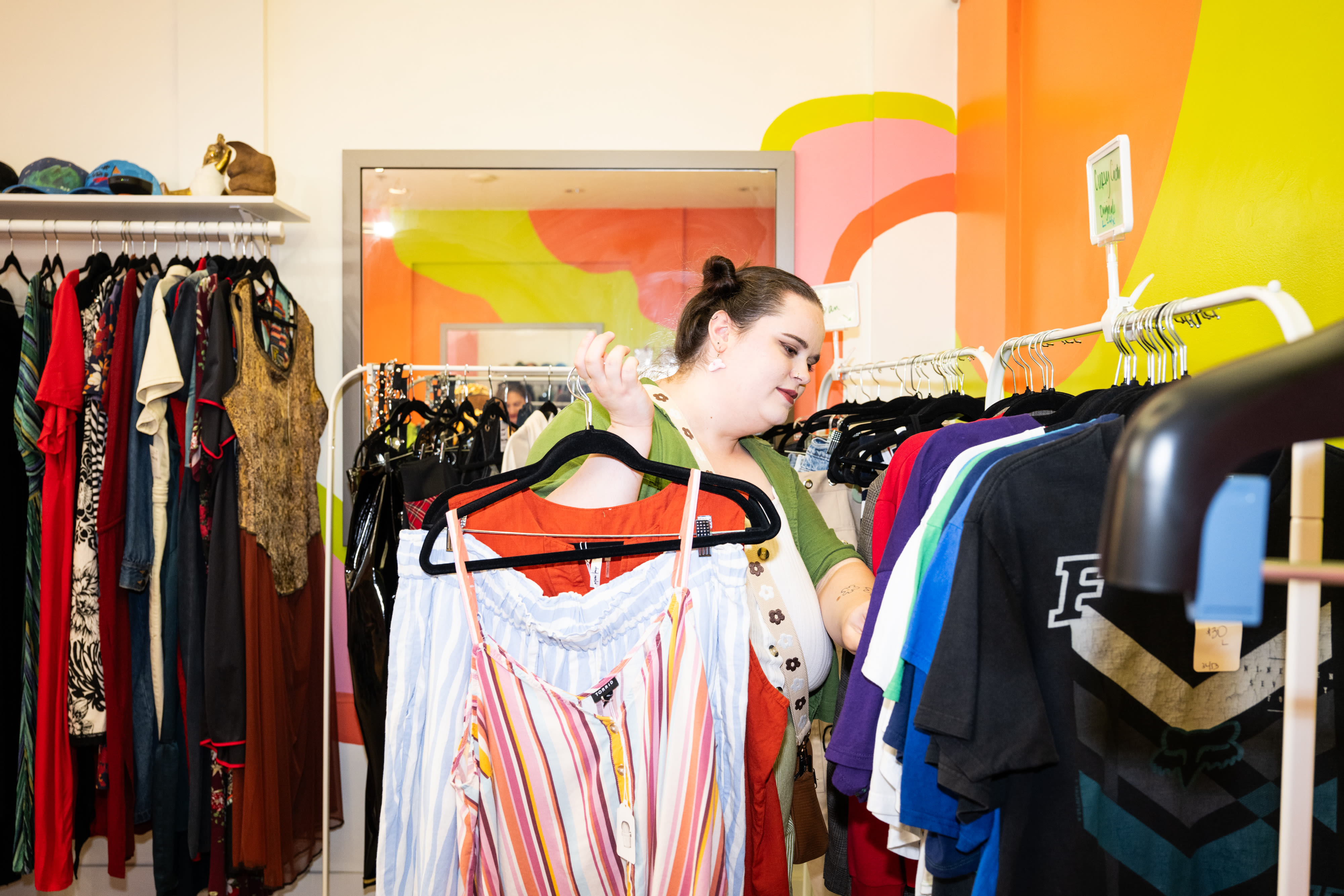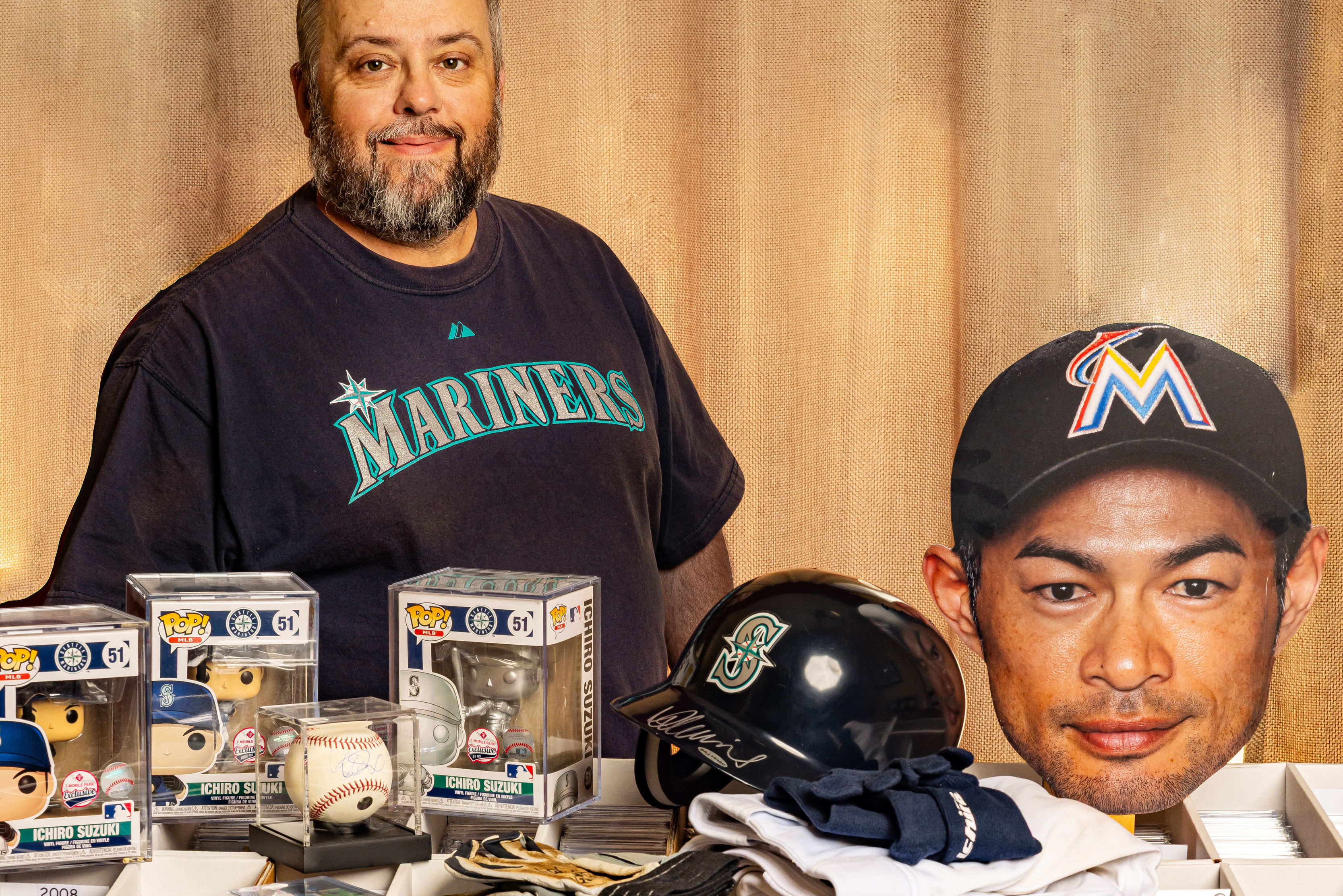The Cat Cafes Are Coming!

Image: Kyle Fewell
After confirming my reservation, a woman with horn-rimmed glasses pointed toward a giant bottle of sanitizer and issued parting words you don’t usually hear when ordering a pour-over coffee: “It’s up to the cats whether they touch you or not.”
Through an adjacent door, more than a dozen felines climbed shelves and scratched posts. Some cavorted with humans, others ignored everyone entirely. As cats do. A volunteer made sure visitors didn’t make unwelcome advances and offered advice on the best method of come-hither toy waggling. The quiet was almost reverential; the Instagramming was nonstop.
This is America’s version of a cat cafe, a concept that began in Taiwan and is rapidly spreading across the U.S. This particular pay-by-the-hour feline encounter happened at Cat Town in Oakland. It became the nation’s first permanent cat cafe in October 2014, followed quickly by versions in cities like New York, San Francisco, and Denver, and a dozen more pending locations from LA to DC. In Seattle, home of feline celeb Henri le Chat Noir, as well as one million lol-inducing cat memes courtesy of I Can Has Cheezburger, two groups are vying to bring our city its first cat-stocked coffeehouse.
Just launch a Kickstarter, lease a space, and round up some cats and an espresso machine, right? Not so much. Introducing a business that combines live animals and food service takes entrepreneurship in bizarre new directions, from figuring out how to tastefully conceal a litter box to educating potential customers on the first rule of cat cafes: You do not bring your own cat.
In Asia, these cafes are regular coffee shops where a pack of felines roam free. Customers sip bubble tea and frolic with the cats, a novelty since most apartments in cities like Tokyo or Taipei don’t allow pets.
In the U.S., the idea of using animals for profit is more dicey. Domestic cat cafes have evolved into a hybrid of pet adoption and speed dating: Get to know a feline, over coffee, before deciding whether you want to go home together. Cafes partner with animal shelters to supply potential adoptees. In Oakland, Cat Town places roughly 50 cats a month in permanent homes.
McRae Naayers is working with her husband and another partner to open Seattle Kitty Kafe. They’ve spent months navigating issues like insurance (they settled on one used by petting zoos) and finding a landlord who doesn’t hear lots of cats and think lots of urine and hairballs. She’s hunting a location with a realtor who specializes in dog day cares.
Meanwhile, a trio of UW alums are planning a cat cafe called Seattle Meowtropolitan (yes, puns are fundamental to cat cafe culture). They hosted a popup on Valentine’s Day; more than 800 people made reservations, filling the two-day event just days after it was announced.
Both camps say they struggled most with Seattle’s zoning laws. Rather than set up shop in dense neighborhoods that seem like cultural fits for this unconventional trend, they’ve decamped to quieter, less commercial locales. Seattle Kitty Kafe, which is aimed at students, scrapped its original hope of a U District spot; Naayers and her partners are scouting places near Alki Beach. And the Seattle Meowtropolitan crew had to forego their Capitol Hill plans in favor of a space with transit access and lots of windows. As at other domestic cat cafes, customers will likely be able to book online for a fee (maybe $10 per hour) or gamble on a free walk-in spot.
Seattle Meowtropolitan hopes to open this summer; Seattle Kitty Kafe wants to be in business before the new school year. Both acknowledge that those timelines depend on a lot of variables. One of which is having to explain, every step of the way, what exactly this business does. “There are a lot of people who love the idea,” says Seattle Meowtropolitan cofounder Mat Lai. “And a lot of people who think it’s kind of gross.”
Both groups say getting the health department’s buy-in was surprisingly simple—as long as there’s a wall between animals and drink service. At some U.S. outposts, the “cafe” part is basically a glorified coffee cart out front. Half-assing the coffee isn’t an option here: One of the first orders of business for both groups was finding a roaster. Seattle Meowtropolitan will serve Herkimer; Seattle Kitty Kafe went with Caffe Vita.
No matter how inviting a space, how plentiful the hand sanitizer, or how shiny the prestocked toys, though, the biggest variable remains the cats themselves. On my visit to Oakland’s cat cafe, most occupants were more interested in an afternoon nap than cavorting with customers.
This article appears in the May 2015 issue of Seattle Met magazine.




